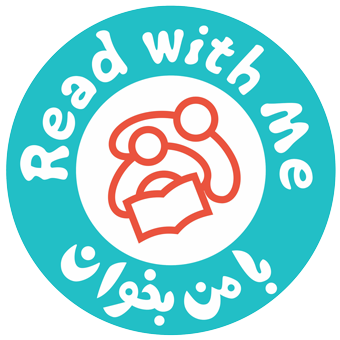Reading Saves Lives-IBBY Support Children in Crisis
The International Board on Books for Young People (IBBY), the United States branch of IBBY (USBBY), IBBY México/A leer, REFORMA, The American Library Association and the Texas Library Association call on the US Government and the bodies responsible for the care of unaccompanied refugee children and families while they are detained in facilities and as they are released to allow them access to appropriate books, to have contact with Spanish-speaking librarians who are trained in using books as therapeutic agents, and to ensure that their well-being is monitored as they are processed through the system. Books and reading save lives and give traumatised children a chance to become whole, contributing citizens as they grow up.
According to the Government Accountability Office (GAO) report on Unaccompanied Alien Children 56,000 unaccompanied children were detained at the border between Mexico and the US in 2013-2014. Another 26,000 have arrived in 2014-2015. Since 2009, 186,233 children under 18 have been held. Of these 10% are under 10 years old and 13% under 14. 30% are girls. A large proportion of these children come from El Salvador, Honduras and Guatemala—where there was a vicious and underreported civil war in the 1970s and 1980s in which well over 300,000 people died; 250,000 of them in Guatemala alone – with many victims of Maya descent.
Despite the lower numbers of children entering the United States the number of people fleeing the region has not declined. Border Fact Check of the Washington Office on Latin America (WOLA) reports that Mexico is now detaining the Central Americans before they reach the border. From October 2014- June 2015 92,889 were held in Mexico and 70,448 in the US.
A number of these children have now been released to family members, although the exact numbers have not been publicly stated by any agency. And the conditions of their release appear to be problematic, according to the Lutheran Immigration and Refugee Service.
Guatemala, Honduras and El Salvador, as well as parts of Mexico, are once again experiencing renewed conflict with the death rate climbing to levels seen in the 1980s. This conflict is primarily driven by the war on drugs. In Central America the repercussions of the previous war, in particular the corruption, extreme inequality, poor policing, and broken social structures have resulted in governments finding themselves virtually incapable of protecting their citizens. As in most war zones children suffer the most grievous consequences. The flood of unaccompanied children seeking refuge from the violence is a direct result of the past 45 years of war in the region.
It is widely understood that these children have legitimate claims as refugees, as their lives in their home countries are endangered by gangs, hostile police forces, and the chaos brought about by the war on drugs. In its report the GAO has chastised the Department of Homeland Security (DHS) and the US Customs and Border Protection (CBP) for the slow pace of processing refugee claims leading to some of these children being detained for over a year and many others being deported without due process. According to a report on WKBW news (ABC in Buffalo) less than 1/3 of these children have access to legal representation allowing them to receive fair refugee hearings.
The WKBW also reports that in a sample of 5 CBP facilities they looked at the use of funds spent on these children’s detention – ۰% was spent on therapeutic treatments. Children who have fled their homes due to violence and fear of death, have travelled alone through Mexico, crossed the border, been detained in limbo and who are certainly highly traumatised, are receiving no therapeutic interventions. And a recently released report by the Lutheran Immigration And Refugee Service states the following concerns: “the flawed screening process at the border, which excludes many children from protection on the basis of nationality rather than individual circumstances; the use of inappropriate holding and institutional facilities both at the border and upon subsequent transfer; weaknesses in the system of placement, reunification and follow-up that fail to fully ensure children’s safety; the clear inadequacy of legal representation for children (despite heroic volunteer efforts); and budget-driven imperatives to fast-track procedures for children.”
Children who are readers have better life long outcomes. Strong public libraries, access to appropriate materials, and a strong culture of reading promotion in communities help children everywhere live better lives. Poor children and those from ethnic minorities often lack access to this support, even in countries as wealthy and stable as the United States. And refugee children and those whose societies are destroyed by conflict and post-conflict situations have almost no chance to thrive and grow. This is not only deeply unjust, it is unacceptable. We can change this situation. And we are calling for everyone to join us to give these children who are suffering the chance they deserve to live good, positive lives. IBBY has a long history of providing Bibliotherapy for children in crisis from Venezuela in 1999 to the Mediterranean island of Lampedusa today.
This post is also available in: Persian




Leave a Reply
Want to join the discussion?Feel free to contribute!